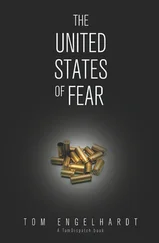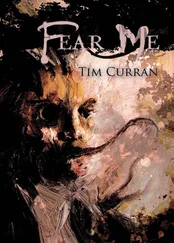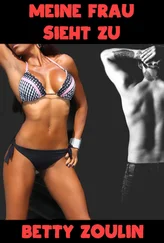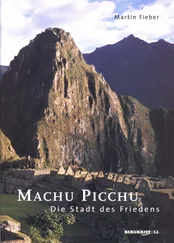In Rose’s room we began our preparations. Henry and Rose seemed rather shy around each other, and I tried to warm the atmosphere with some chatter, showing Henry the fine points of the costume, the wig, all of it. He undressed behind a screen in the corner to don his stage trousers and shirt. Then he stepped out, and Rose and I helped him with the rest of it, tucking and pinning. We left the shirt unfastened at the top, and Rose placed a towel around his neck, like a collar, and we got him seated at a small table in front of a looking glass to get him blacked up.
I showed him the technique — three fingers, held together and flat, so as to apply the cork evenly, in successive, incremental arcs following the curves of the jawline and cheekbones — and he set to work applying it under our gaze. I saw him look at himself before applying the first swipe, as if he were looking at a friend who was departing for a long journey. His copper-colored skin, the long eyelashes, the green eyes. He brushed his fingers across the surface of the coal-dark mixture and, watching himself eye-to-eye, spread a first swath of black across his forehead, then a next one, and I watched him slowly transform himself. When he had finished, with a couple of touch-ups suggested by Rose, he sat staring at himself in the glass for several moments.
I retrieved the wig from a stand on another table, slipped the netting of tight black curls over Henry’s own hair, adjusted it slightly. We all three regarded his image in the glass.
“Now you’re one of us!” I said.
He looked at me in the mirror with a cryptic smile, barely more than a glint in his eyes.
I left Henry and Rose and headed back to the dressing room, where Mulligan and Burke were getting themselves ready. Shortly after I entered, Eagan and Powell found their way in, and we all got down to the business of remaking ourselves.
“Tonight is the night for the Banjo Phantom, isn’t it?” Burke asked.
I said that it was.
“Where is he?” Powell asked.
“We had to get him fitted down at Rose’s,” I said, noting a quick alertness from Eagan. “He is pathetically shy, I think because of the language barrier as much as anything. I’ll retrieve him and bring him in so everyone may get acquainted before curtain.”
“It would not have been a bad idea to rehearse beforehand,” Eagan said, not looking at me.
“It was not in the cards this time, Michael,” I said. “At any rate, all we have is some patter, and then he will step out front, do his tune, and that will be that. Not much rehearsal needed. We’ve been through this, haven’t we?”
Mulligan was being quiet and even a bit sulky, I thought.
When I was blacked up and dressed I walked back to Rose’s room, where Rose was laughing at something. Henry sat upon the edge of the divan, with one leg jiggling up and down.
“Well,” I said. “Time.”
We were within view of the dressing room now, and we held up walking.
“I told them you were very shy about meeting them,” I said, running through our plan one last time. “You just smile and nod. I’ll act as if I’m translating, and we’ll converse in our false Spanish, and we’ll see what transpires.”
“You’re sure none of them understands Spanish?” Henry said.
“Not this crew.”
“Tell me again about the others.”
“All right,” I said. “Mulligan I told you about; he’s sure to be a bit jealous of you, so be as solicitous as your language limitations will allow.”
Henry nodded.
“Then there’s Powell, on tambourine — I’ll introduce them, no need to remember it all. Eagan and Burke. . All right, now”—the dressing room door was ajar, across a section of backstage—“Spanish it is.”
I walked into the open door, and Henry waited outside.
“Gentlemen,” I announced, “please meet Juan García. Juan?” I looked toward the door. “He’s very shy. Juan?”
Into the room Henry stepped, long-legged, tentative, like a heron wading into an unfamiliar pond, carrying his banjo, eyes wide, a scared grin on his face, his lurid satin costume a hallucination in a room full of comic tuxedos. The men, all of whom had applied the cork to their own faces, stared at him from behind the black masks.
“ Buenos tardes, señores ,” Henry said, in creditable enough Spanish.
They stared at him through a long moment of strained silence.
“What is this, Douglass? A joke?” This was Eagan.
“Certainly not,” I replied.
Predictably, Powell was the first to take things on face value. He leaned back in his chair and offered his hand to Henry. “Pleased to meet you, brother. Dan Powell.”
Henry looked into the man’s eyes. “ Mucho gusto ,” he said, bowing. “ Juan García .”
Burke and Eagan then greeted Henry, Burke with some amusement, Eagan rather coldly.
The last of them was Mulligan, who had remained seated. Noting his resistance, I stepped in, saying, “And the man who never learned manners, seated there, is John Mulligan.”
Henry popped his eyes wide, looked back and forth between Mulligan and myself. “ Mulligan? Eso? ” Mulligan, squinting, watched Henry and me, in succession.
I nodded.
Turning to Mulligan, Henry launched into a torrent of self-abasing pidgin. “ Señor. . que tenga las banderilleras de todos los arboles y cuatros bolantes infinitas, a las sombras. . a las montañas. . el nombre de Mulligan es lo bandito sobresaliente de la playa de banjo, los palabras de los cojones prodigiosas . .” on and on, that left Mulligan frowning and looking to me for aid.
“I couldn’t catch all of it,” I said. “But I think he said that you are his hero, the greatest banjo player who ever lived, and that your fame has spread even to his country.”
Mulligan seemed to soften slightly, offered his hand from his sitting position, and said, “Obliged. Welcome to America.”
There ensued a few moments of silence, and then the fellows began to turn back to the task of preparing themselves for the night’s show, and I joined them.
“Douglass, where do you learn to speak Spanish?”
“He’s not Mexican. Not with the green eyes. Who is he, really, Douglass?”
Mulligan was tuning his banjo, an elaborately carved instrument with a scroll on the head and inlaid wood up and down the fingerboard. I watched Henry regard the banjo with something like awe. The banjo tuned, Mulligan exercised himself with a number of quick and very dexterous runs up and down the fingerboard, ending with several variations on “Essence of Old Virginny.” Henry looked across the room at me, and I shot him a look that said, He may be an ass sometimes, but he can play the banjo. Henry nodded and smiled.
“ Qué escabeche! ” he said.
“You like that, eh?” Mulligan said. “Let’s see yours.”
Remembering to feign incomprehension, Henry smiled and nodded.
Mulligan said, “Tell him I want to see his banjo.”
I made gestures to this effect, and Henry handed his banjo to Mulligan, who took it, turned it to look inside the rim, examined the head, the joining of the neck to the rim, the peghead. Satisfied, he flipped the instrument around into position and threw off a few runs quickly, then a very fast version of some little rhythmic bagatelle. He nodded once, brought it to a stop, and handed it back to Henry, whose face expressed ecstasy.
“Not bad,” Mulligan said, “Now you play something.”
“ Tocar ,” I offered, from across the room.
Feigning consternation, and after a few protests, Henry played a restrained version of the “Grapevine Twist.” I watched Mulligan’s expression — one of pleasure, since the level of skill on display was just below his, although obviously of high competence. Henry was nothing if not competitive, however; he came to the final chorus and between two of the melody lines slipped in a very tricky phrase that involved raking down across the strings with the nail of his index finger and somehow inserting two perfectly timed thumb plucks on the high string as he did it. A quick frown crossed Mulligan’s face and I could almost hear Henry think, “My compliments.” He was not able to finish before Mulligan interrupted.
Читать дальше










